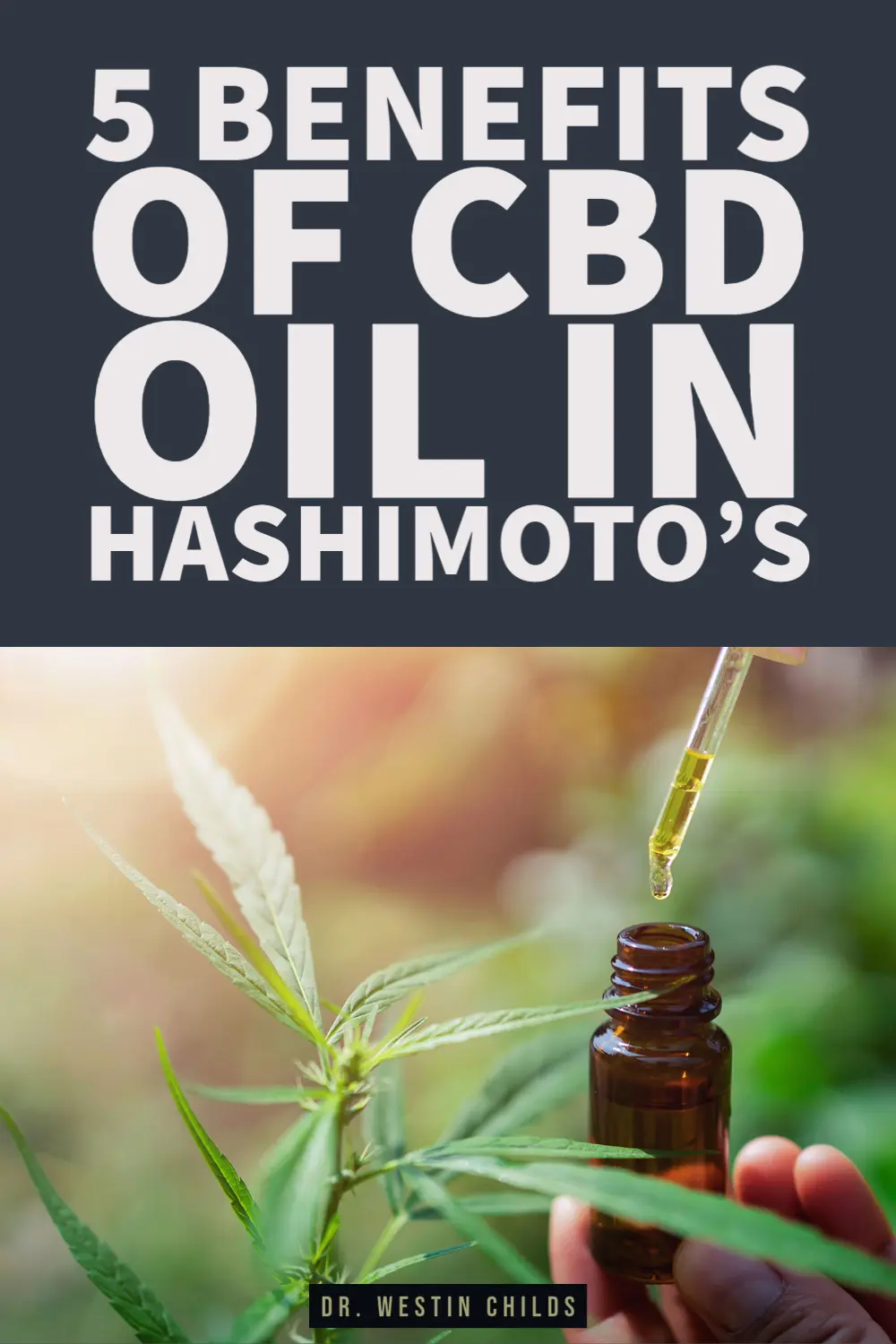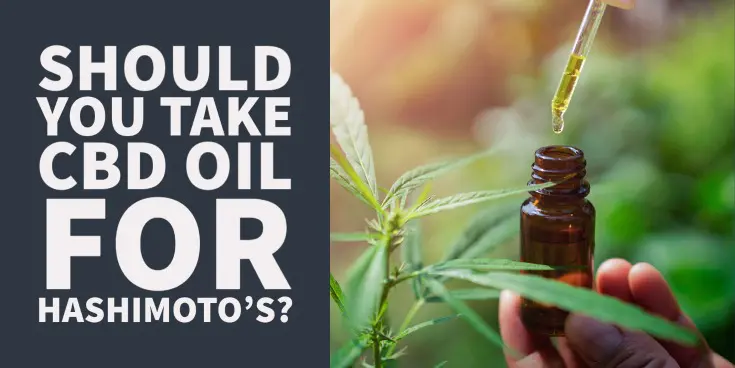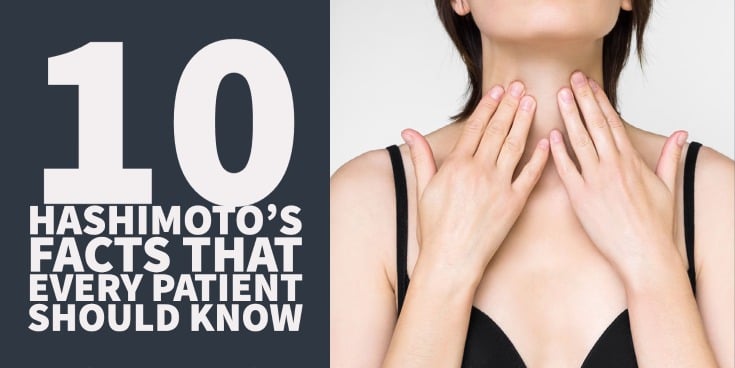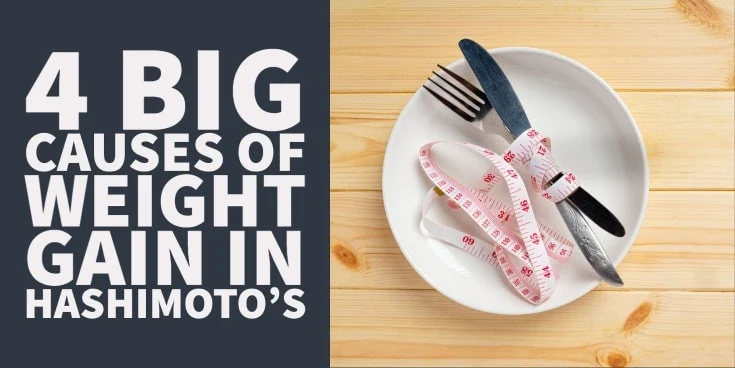Can CBD oil (or CBD in other forms) help treat the autoimmune condition of Hashimoto’s thyroiditis?
When you start to see places like Harvard (1) talking about the benefits of CBD oil you know there may be something to this compound.
This over-the-counter therapy may be considered in certain thyroid patients, especially those with Hashimoto’s who haven’t found success with more conventional treatments.
In this article, you are going to learn about CBD, how it may influence Hashimoto’s, and 5 reasons you may want to consider using it.
Can CBD Oil Help Treat Hashimoto’s?
CBD, which stands for cannabidiol, is one of many cannabinoids found inside of marijuana.
What are cannabinoids?
Cannabinoids are compounds that interact with certain receptors inside of your body.
You’re probably familiar with the high that marijuana can cause and this is caused by one of these cannabinoids (known as THC (2)).
Not all cannabinoids, however, cause a “high” and some even exert action on other tissues in your body. The activation of these tissues may lead to the powerful health benefits of CBD.
While marijuana does contain CBD, it’s important to realize that CBD is not the same thing as marijuana (even though marijuana seems to have some positive benefits on thyroid function (3)).

Some people are afraid that taking CBD is the same thing as marijuana and this is NOT the case.
It’s been shown, in an increasing number of studies (4), that some of these cannabinoids may act on certain cells in your body by influencing specific endocannabinoid receptors.
These receptors control and regulate incredibly important tissues including the following:
- The limbic system (the system that controls pleasure)
- The hypothalamus (the portion of your brain that helps regulate thyroid, metabolism, and appetite)
- The gastrointestinal tract (which influences many systems in your body including appetite, metabolism, and weight)
- Adipose tissue or fat tissue (your fat cells are a rich source of hormones such as leptin which feedback to your brain and other systems)
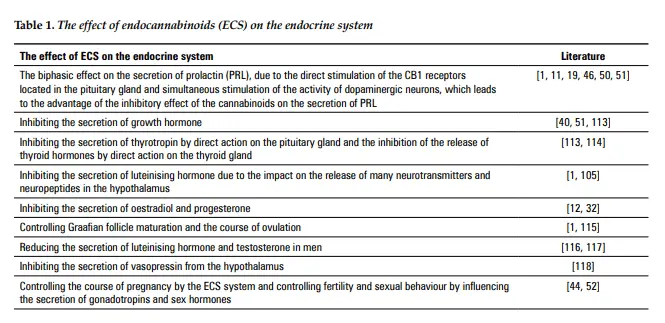
Can you see now why so many people are interested in CBD?
CBD, acting on cannabinoid receptors, may interact with these organs and tissues and influence your hormones, immune system, appetite, and weight.
What’s important here, at least for our discussion, is that CBD is a legal supplement and can be purchased over the counter in almost every State.
This provides you, as the patient, with power and a potential therapy that can influence these important systems.
And this is why I’m interested in CBD oil, especially as a treatment for thyroid diseases such as Hashimoto’s thyroiditis.
DOWNLOAD FREE RESOURCES
Foods to Avoid if you Have Thyroid Problems:
I’ve found that these 10 foods cause the most problems for thyroid patients. Learn which foods you should avoid if you have thyroid disease of any type.
The Complete List of Thyroid Lab tests:
The list includes optimal ranges, normal ranges, and the complete list of tests you need to diagnose and manage thyroid disease correctly!
Potential Benefits of CBD Oil
We know that CBD is powerful but how does CBD help your thyroid?
The benefits of CBD in this setting probably (we don’t know for sure) stem from its ability to impact your immune system, your thyroid directly, and your hypothalamus.
Let’s break each of these down in more detail:
How does CBD affect your immune system?
This is not well understood but it appears that CBD reduces inflammation by increasing levels of IL-10 while simultaneously decreasing pro-inflammatory cytokines such as IL-2, IL-3, INF-y, and TNF-alpha.
You don’t really need to understand the specifics here but what you do need to know is that there is a tug-of-war occurring in your body between pro-inflammatory cytokines and anti-inflammatory cytokines.
If you have Hashimoto’s thyroiditis (or any other autoimmune disease), your body is losing the war.
CBD oil may help ‘even the odds’ by promoting an increase in the cytokines that you want while decreasing those that cause harm.
This effect is probably why certain people with Hashimoto’s see improvement and why other patients with autoimmune conditions do as well.
In addition, CBD may have a direct effect on the production of thyroid hormone (5) by stimulating your thyroid gland directly.
The impact CBD has on the thyroid gland is somewhat confusing, to say the least.
Studies show that CBD can reduce the amount of T4 and T3 that the thyroid gland produces while also reducing the TSH (6).
In addition, these same studies show that CBD seems to have a protective effect against the production of anti-thyroid antibodies.
To summarize, CBD seems to impact all levels of thyroid function including TSH, free thyroid hormones, and thyroid antibody levels.
But how can something which decreases your free thyroid hormone levels be “good”?
My feeling is that it probably impacts cellular sensitivity in some way which makes the amount of thyroid hormone in your body more effectively.
This might reduce the amount of free thyroid hormone necessary in your bloodstream which would in turn cause a reduction in TSH.

This is just speculation, however, and I will be keeping an eye on the research as it unfolds.
Lastly, CBD also probably impacts your thyroid gland indirectly by influencing your hypothalamic function.
Your hypothalamus is a major regulator of metabolism and, therefore, T3 levels in the body.
Anything which stimulates or regulates the hypothalamus will necessarily have at least some impact on your thyroid gland.
In our case, this stimulation is a positive thing as it may help promote T3 production directly and conversion of T3 from T4.
It may also have an impact on leptin sensitivity and leptin levels which also indirectly impact T3.
While we don’t have all of the details, we do have enough information to suggest that CBD may be helpful for some thyroid patients presumably from the three areas listed above.
Looking at these areas may be enough to make you consider using CBD but there are still some other important points you should be aware of as well.
With that in mind, take a look at 5 reasons that I believe you should consider using CBD oil if you have Hashimoto’s or hypothyroidism:
#1. Safety Profile
Just because a therapy is considered to be “effective” doesn’t mean that it should be used.
We have plenty of therapies in medicine that have been shown to be effective but which cause negative side effects or consequences.
On the flip side, we have plenty of therapies that can POTENTIALLY help people with Hashimoto’s which are very safe but not very effective.
What we really want is something that is shown to be both VERY effective and yet VERY safe.
How safe a medication or therapy is, is referred to as its safety profile.
And whenever you, as a patient, consider any therapy you should always ask yourself about the safety profile of that thing.
CBD, as a therapy, has a strong safety profile (7).
Meaning, it is considered to be a safe therapy.
The most commonly reported symptoms associated with using CBD include nausea, fatigue, diarrhea, and changes in weight or appetite.
*Note: CBD oil can also impact some prescription medications such as coumadin.
You can get these kinds of side effects from certain healthy foods!
Does this mean CBD is safe and that all people will tolerate it well?
Not necessarily, but it does mean that your risk of developing some serious issues as a result of using it is very low to non-existent.
While it’s important to understand the safety profile of certain medications and supplements, you should also consider the inherent bias that exists between over-the-counter supplements and medications.
Certain prescription medications, for instance, are notoriously dangerous but this danger is tolerated simply due to the bias that exists in the system.
Take statins, as an example:
We know that people who take statins have an increased risk of developing muscle damage (8) (1 in 24) and even diabetes mellitus (9) (1 in 204) and yet statins are prescribed like candy by most conventional doctors.
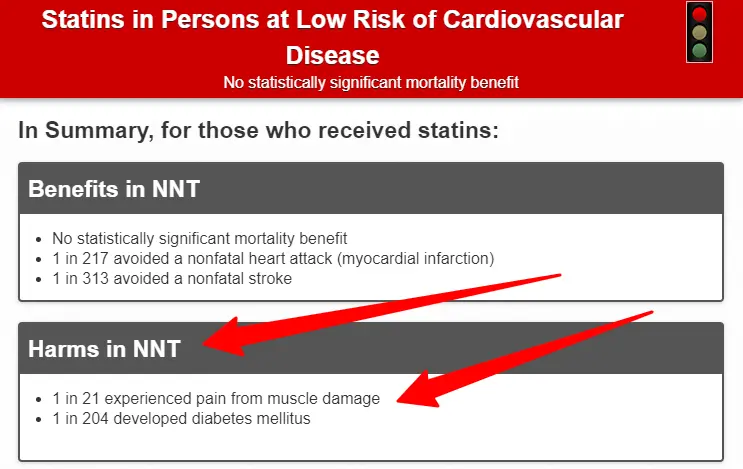
You might think the benefits of these medications are enough to outweigh the risks but there is enough information to put even that into question (10).
Can you imagine if an over-the-counter supplement was known to increase the risk of diabetes even if it was at a rate of 1 in 10,000?
It would no doubt be all over the news and it would pulled off the market by the FDA.
Why do I bring this up?
Because as a patient, you need to be aware of this bias so that you don’t get confused by sensational headlines that you might see regarding CBD (or other supplements) in the news cycle.
Stay grounded and take a look at what the studies show before you make a decision regarding what to take (or not).
#2. Additional Benefits Beyond Hashimoto’s
I think another reason to consider using CBD oil would be that it impacts more than just one system in your body.
This is true of MOST over-the-counter supplements, by the way, but is not necessarily true of prescription medications.
Over-the-counter supplements and herbal remedies tend to impact multiple systems because they are less specific than prescription medications.
Medications are created to impact very specific enzymes or receptors and may not impact ANY other cellular components.
This makes them potentially efficacious but also very narrow in terms of how they help.
You can think of supplements as being less specific and broader in how they impact your cells.
The result is that you can take a supplement and experience multiple sets of positive effects.
CBD oil seems to fit into the former category probably because there are receptors on multiple cells.
The result is that CBD oil can potentially help you in many other ways aside from just impacting your immune system.
Additional benefits may include:
- Reduced anxiety (11) (very important as many thyroid patients also suffer from anxiety)
- Improved sleep (12) (many thyroid patients suffer from insomnia)
- Reduced pain (13) (many thyroid patients suffer from chronic pain)
- Reduced inflammation (14) (inflammation may reduce T4 to T3 conversion and impact your thyroid)
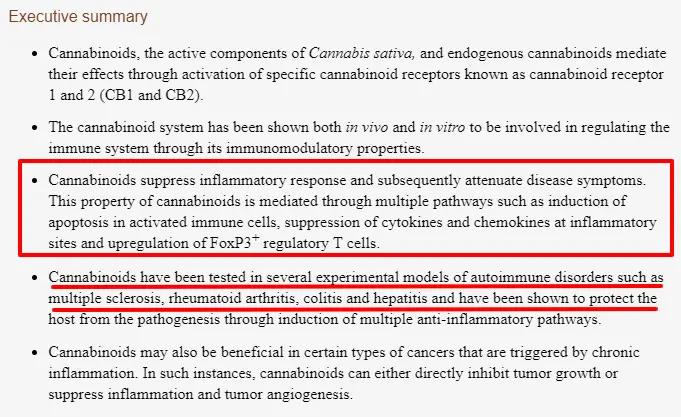
If you have any of the symptoms listed above then there might be a stronger case for you to at least trial CBD oil.
#3. Another Therapy for Hashimoto’s
As a patient with Hashimoto’s, you are probably all too familiar with the current treatment paradigm (or lack thereof).
The standard treatment for Hashimoto’s is really just a wait-and-see approach in which your doctor typically waits until your body destroys enough of itself that you require some form of therapy (usually thyroid medication).
As a patient, this can be troubling to hear.
The good news is that there are several therapies which are available to Hashimoto’s patients who don’t want to take the wait-and-see approach.
The only problem with some of these therapies is that they are not always effective and the results that each patient may obtain vary.
Changing your diet, reducing your stress, taking supplements, and so on are all helpful therapies, but they do not guarantee that you will be able to treat or reverse your condition.
So whenever I see a therapy that can potentially help treat Hashimoto’s I get a little bit excited.
And, as a patient, you should be aware of all of these therapies, not because you necessarily want to use them all right away, so that you can come back to them at a later date.
Even if you don’t plan on using CBD, for whatever reason, at least put it in the back of your brain as a potential option to come back to later.
#4. Availability over the counter
Another big reason is how easy it is to get!
I constantly hear of the frustrations that patients feel regarding obtaining prescription thyroid medication.
In many cases, patients may know more about thyroid medications than your doctor (you probably fit into this category if you are reading this) and yet they are not able to get the thing that they need.
Why?
Because something stands in their way. The prescription pad from the doctor.
It doesn’t matter what you know if your doctor isn’t willing to provide you with a prescription.
You don’t have this problem with certain supplements and it doesn’t exist with CBD.
CBD is currently (and for the foreseeable future) available over the counter and can be purchased easily.
Even though you can get it without a prescription from a doctor I still recommend that you discuss what you are taking with your doctor!
It’s important to have an open dialogue with your doctor to ensure that you are not doing anything which would negatively influence your other therapies.
If your doctor is not willing to work with you on this then you may need to seek a second opinion (use this resource to help you find one).
#5. Patient Success Stories
Some people tend to rely more on clinical studies to support how they treat themselves while others tend to focus on the results of others.
I really think that there is value in both and I tend to look at both sides of the story before recommending therapies to patients.
Clinical studies, while necessary and very helpful, don’t always tell the full story.
The results can be skewed or interpreted in virtually any way that suits the bias of the author of the study.
In addition, we don’t always get to see the results of studies that were not published.
If a study doesn’t show the results that the author was looking for he/she doesn’t have to publish it.
It’s possible for the same study to be run 3-4x until it finally produces the results that the author is looking for (we see something similar happen with some phal medications (15)).
Lastly, just because a study shows that something is effective doesn’t mean it translates into clinical practice!
I’ve been very excited about several therapies when I read about them in studies only to find out that they simply are not nearly as effective as I thought they would be in the real world.
Patient success stories, on the other hand, tend to come from different places.
They lack the controls that clinical studies have but they still have value as a “proof of concept”.
Do we see that CBD oil has been used successfully in patients with Hashimoto’s and thyroid disease?
The answer is yes.
We see positive success stories in those who have taken it and they have shared their results.
If you are someone who fits into this category I would encourage you to leave your comments or experiences below as it may help those who are on the fence.
Should you try it?
While CBD shows promise and may be something worth considering, just because it has the potential to be effective doesn’t necessarily mean you should take it.
One of the downsides to CBD and I see this same thing in many other supplements and therapies, is that while it may work to improve your thyroid function, it’s not necessarily working by reversing the issues which are causing your conditions to begin with.
If you are pounding down refined sugar, eating out on a regular basis, and suffering from serious stress from work or other aspects of your life, then CBD is probably not going to solve those issues.
But, if you’ve tried all of the natural therapies that I’ve listed above and have found some improvement, but not a complete improvement, then CBD may be a good idea in that situation.
It might also be a good idea to use if you have Hashimoto’s triggered by something which is not necessarily treatable or reversible.
If an acutely stressful event triggered your Hashimoto’s then it’s not really possible to go back in time to prevent it from occurring.
If this is the case for you, then CBD may be an option worth considering.
Like other thyroid therapies, there isn’t a one-size-fits-all approach that you can or should take.
Instead, make sure you weigh the potential benefits against the potential side effects and determine if it is right for YOU.
If you choose to use CBD ensure that you are getting a quality product if you want to see results!
I’m coming to understand that there are MANY cheap products available that do NOT contain what they claim (in a somewhat unregulated supplement industry).
So if you try one of these brands and do not see results do not blame the CBD! Instead, it’s probably more related to the low quality of the product.
Conclusion
CBD oil shows promise as an emerging treatment for those with thyroid disease and especially Hashimoto’s thyroiditis.
It’s not clear exactly how or why CBD oil is effective but it probably has to do with how it impacts your thyroid gland directly and other systems, such as the hypothalamus, indirectly.
The net result may be an improvement in both direct thyroid symptoms and indirect symptoms such as anxiety, pain, and insomnia.
As a thyroid patient, it may be worth exploring this therapy especially given its excellent safety profile and relatively cheap cost.
CBD oil is available over the counter and can be purchased online, making it an ideal complementary therapy to whatever you are currently doing to treat your Hashimoto’s.
Before using it, however, be sure to check with your doctor!
Now I want to hear from you:
- Are you currently using CBD oil?
- Is it working for you?
- What differences have you noticed (positive or negative)?
- Are you thinking about giving it a try?
- Why or why not?
Share your experiences, questions, or comments below!
